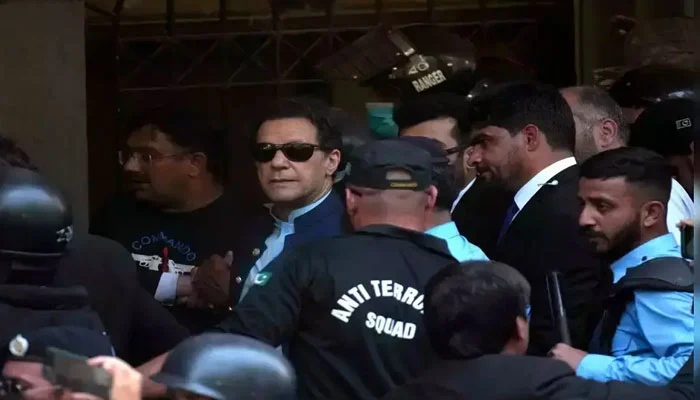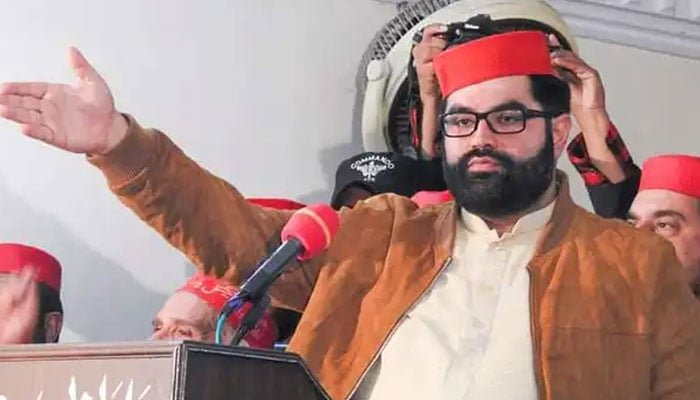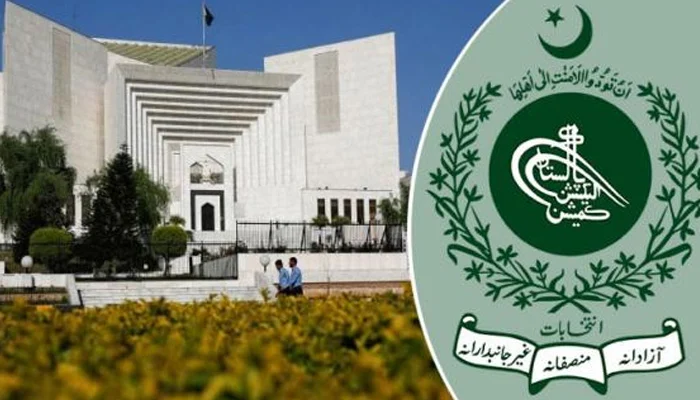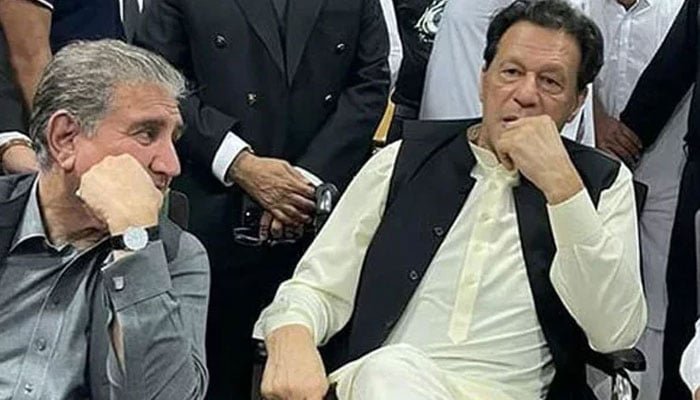The Saafar case, which has garnered significant attention in Pakistan, took an unexpected turn as the testimony of three key witnesses, who testified via video link after their identities were concealed, unveiled compelling details during the hearing against Pakistan Tehreek-e-Insaf (PTI) Chairman Imran Khan and Vice Chairman Shah Mahmood Qureshi.
These three witnesses had recorded their statements under duress, but during the hearing, they provided remarkable insights that have the potential to reshape the case. The witnesses’ identities remain undisclosed for their safety.
The Saafar case stems from allegations of corruption and clandestine meetings involving high-ranking PTI officials. The testimony provided by the three witnesses through video link at the hearing brought to light vital information that adds a layer of complexity to the ongoing investigation.
Chairman PTI, Imran Khan, and his legal team departed for a family meeting at around 2 PM during the hearing, while Shah Mahmood Qureshi’s attorneys submitted two requests for minutes of the cabinet division meeting that discussed the complaint against Saafar.
The special prosecutor informed the court that the cabinet division had indicated that the minutes of the meeting were classified as confidential documents, implying that they could not be shared during the proceedings.
Furthermore, Judge Abul Hasanat remarked on the confidential nature of the meeting minutes, stating that such documents could not be provided as evidence during the case. While Shah Mahmood Qureshi’s attorneys were keen to access these documents, the court’s stance remained firm.
Advocate Saif Ali Safai, representing Saafar, contended that while the cabinet division’s laws classified the minutes as confidential, the trial continued unabated. He affirmed that the trial was not contingent upon the classification of the minutes.
The hearing began at around 10:00 AM and continued until noon, with subsequent sessions scheduled from 11:00 AM to 12:00 PM and 1:00 PM to 2:00 PM. The meetings were attended by Chairperson PTI, Imran Khan, and Vice Chairman Shah Mahmood Qureshi, as well as their legal teams.
However, there was an initial disagreement between the legal teams and the court regarding the presence of documents, with the court denying permission for the inclusion of documents or pencils during the meeting. Upon the legal teams’ objection, Judge Abul Hasanat later allowed the attorneys to meet with Chairman PTI and Shah Mahmood Qureshi and conduct a second meeting, granting them access to the case files and documents.
The Saafar case has attracted substantial media and public attention due to its potential political ramifications. It revolves around allegations of secret meetings, corruption, and misuse of power by PTI officials, including Chairman Imran Khan and Vice Chairman Shah Mahmood Qureshi.
The recent revelations from the three witnesses provide a fresh perspective on the case, offering a glimpse into the complexities surrounding it. With the proceedings continuing, all parties involved are eager to see how the evidence and testimony will influence the case’s outcome.
As the Saafar case unfolds, the public eagerly awaits further developments, keeping a close watch on its impact on Pakistan’s political landscape. The case highlights the importance of transparency, accountability, and the rule of law in the country’s governance and justice system.



